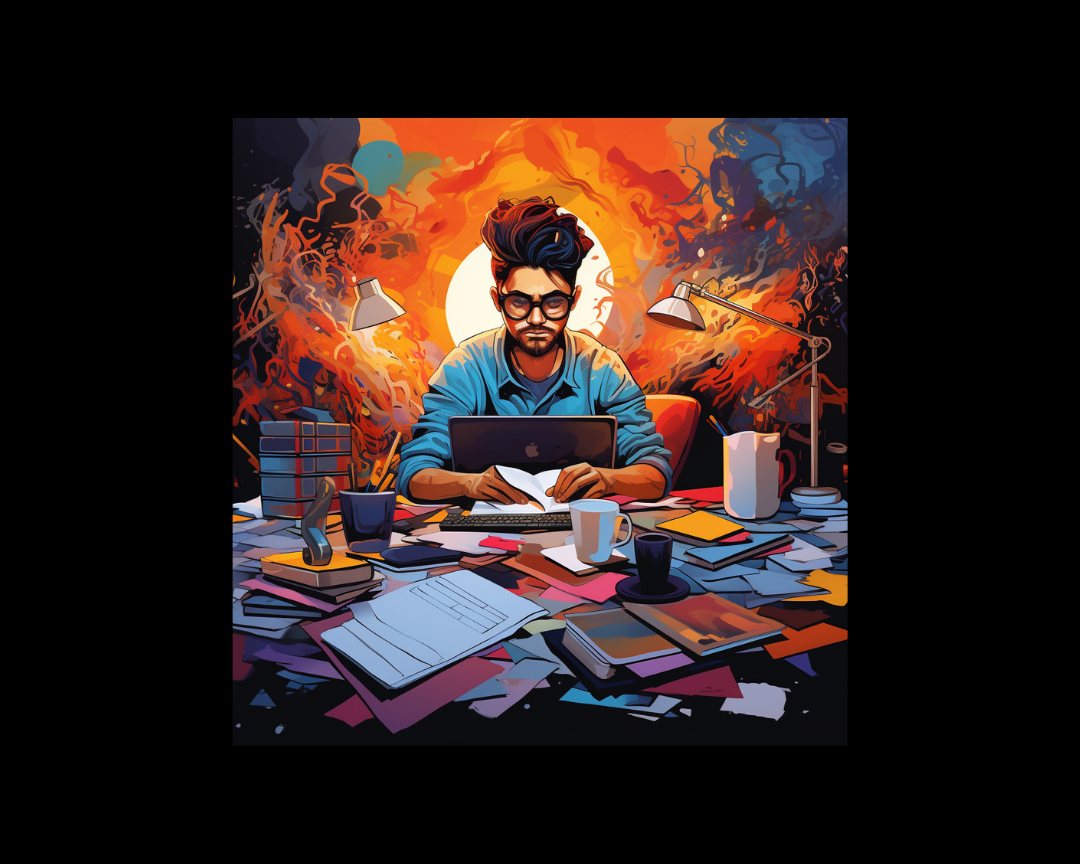Dystopian Writing Prompts to Ignite Your Imagination
Dystopian literature enjoyed a surge in popularity a few years ago with series like The Hunger Games. Though the genre witnessed a decline, it's...
2 min read
 Writing Team
:
Feb 2, 2024 8:58:56 PM
Writing Team
:
Feb 2, 2024 8:58:56 PM

As writers, we aspire to reach the “perfect” final draft for whichever project we have in mind. We want to produce works of art that take readers through a beautiful dance. But the journey to the limelight is not always elegant or easy, as you likely know if you’re a writer.
While some may view the writing process through a rigid lens of "rough draft" and "final draft," the reality is the process is much more complex and varied. A single pass through a project followed by a quick editing sesh doesn't always yield the best outcome.
In exploring the writing process, author and English professor Audrey Wick has a method in which she explains crafting content by dissecting it into three essential phases: prewriting, writing, and rewriting.
A more effective approach to creative writing often involves embracing this three-part process. This method, initially taught in first-year writing courses, applies to writers at all stages, phases, skill levels, and genres.
To inspire you on your next writing project, let's waltz through each stage of Wick’s seasoned advice. Then, we’ll explore how you can adapt this process to your creative methods and goals.
Pre-writing is the messy “before" phase of your before and after transformation. In this step, focus on emphasizing the importance of actions that precede actual writing.
Environmental considerations, such as a conducive workspace or the right writing tools, intertwine with personal factors like allocating sufficient time in the day and perfecting the art of brainstorming. Reflect on your preferred writing style—whether it involves outlines or spontaneous composition—and create an environment that nurtures your focus M.O.
Identify any important tasks that might enhance your project's smooth execution. Whether it's research, scheduling interviews, having reference materials at hand, or even taking a walk to clear your head, allocating time for these tasks ensures a confident and organized start.
This is the phase where ideas come to life. In other words, “the work.”
While writing, we become inventors, craftsmen, poets, visionaries, and experts— establishing sentences and lines that are entirely novel. Revel in the decision-making process: choosing the perfect title, determining paragraph count, selecting transitions, and crafting a compelling conclusion. This stage is an exploration of your project's facets as decisions take shape.
To quote the creative powerhouse, Anne Lamott, we need to create “shitty first drafts". It’s part of the experience of being a writer. We need to revisit the work post-writing.
Beyond editing and proofreading, structural concerns come into play during rewriting. To help you rewrite, assess the organization, coherence, and potential additions of your piece. Double-check any potential fact-checks and copyright considerations. Viewing your work "again" may surprise you with new perspectives, prompting a fresh approach.
The repetitive nature of this three-step process may lead back to the prewriting stage, introducing new elements or addressing major overhauls. The key lies in recognizing when to conclude the process.
A project may be deemed complete when further iterations in prewriting, writing, and rewriting no longer yield productive changes. This process, while complete for a short essay in some cases, may be repeated multiple times for more substantial projects.
As you explore a process-oriented approach to writing, you’ll notice your work speaks more boldly than before. Whatever you do, don’t stop writing. And rewriting. And rewriting until your process becomes a life force of its own.
For more creative and professional writing tips, browse the Hire a Writer blog.
.png)
Dystopian literature enjoyed a surge in popularity a few years ago with series like The Hunger Games. Though the genre witnessed a decline, it's...
%20(1)-1.png)
They say the best writers are readers, and while there are endless learning opportunities to be gleaned from reading novels and poems, there’s no...
%20(1)-1.png)
As writers, our primary charge is to elucidate whatever the topic demands, whether story, concept, process or application. However, clarity is not...